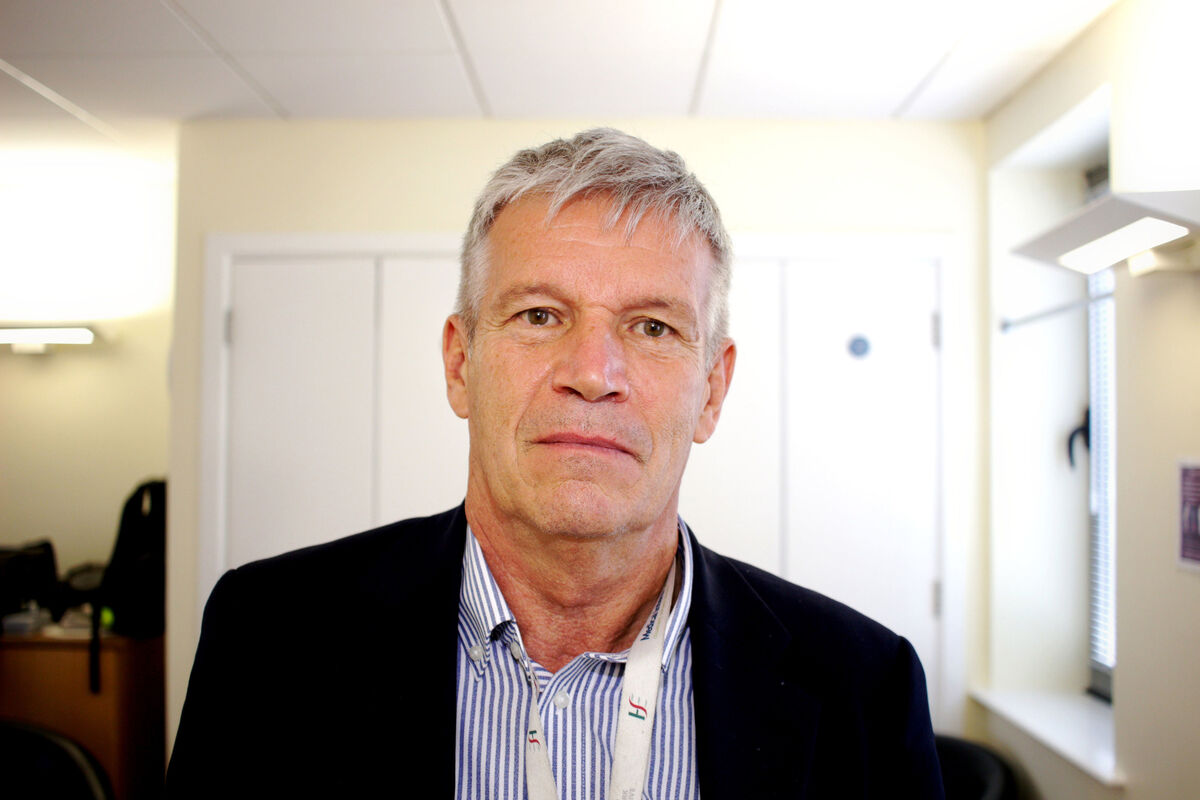Prof Jack Lambert: 'Brain fog' the most persistent symptom of long Covid

15%-20% of people with Long Covid have unexplained anxiety, depression, PTSD, and some are experiencing problem alcohol use to cope with the challenge of Long Covid. Picture: iStock
In the first wave of Covid-19, with the original virus, it appeared the lung and heart would be the targets of damage.
Following the establishment of the long Covid clinic at the Mater in June 2020, we became aware that the heart and the lungs repaired themselves, but that Covid also affected the brain, and this is where residual damage persisted, and that some people, even a year after infection, had residual symptoms.
We established our clinic to provide both a research platform as well as a clinical care centre.
We developed a protocol called 'Anticipate' and consented 155 patient to perform quality-of-life assessments on their journey with long Covid. To date, the clinic has seen over 1,000 patients, has over 80 follow-up patients monthly, and 25 or more new patients being seen monthly.
As stated, early on it was my clinical observation, and also the observation from review of the medical literature, that the brain was the primary target of long Covid.
We based our understanding and treatment of patients as early as April 2021 on focusing on the brain and the need for brain rehabilitation, as accumulating information from the medical literature supported that this is where the 'money was'.
The brainstem contains numerous distinct nuclei and subparts that regulate the respiratory, cardiovascular, gastrointestinal, and neurological processes.
Indeed brainstem dysfunction has been implicated in other similar disorders, such as chronic pain and migraine, and myalgic encephalomyelitis or chronic fatigue syndrome.
At one year, many of our patients, including many staff members from the Mater and other hospitals who were referred for evaluation, as well as from GP referrals from the region, had persistent 'brain fog' cognitive issues, exhaustion, sleep disturbances, psychological issues that they did not have before.

We initially thought that only cranial nerve 1 and 2 were damaged by Covid (smell and taste) but accumulating experience in my clinic showed many of the cranial nerves involved, including the vagus nerve, which controls the 'fight or flight' response that many long Covid patients experience.
We have published the results of our work in medical journals, and offered to share our results with the national clinical lead and with the Minister for Health.
We had a 'dissemination' event in April 2022 to present all of our published results, as required by the Health Research Board, and invited the minister to attend.
We have written to have an opportunity to present our data, as we see gaps in the current 'Interim Long Covid Plan for Ireland'.
We have offered to assist in rewriting the guidelines to reflect the current problems that patients are experiencing.
I have had a chance to review the draft Long Covid-19 guidelines, dated July 2021, which outlines a plan that appear to be taken from the UK plan, and indeed most references are taken from the UK, and some from Italy.
By the time this document was completed and distributed and enacted, the 'goalposts' had shifted.
It focuses on early post Covid-19 follow-up with a group of eight pulmonary specialists, and a cadre of dieticians and podiatrists funded (no mention of psychologists).
However, as stated, for those of us managing patients in the hospital, the accumulating evidence at that time was that the lungs were healing, the heart was healing, but the brain was not healing.
In addition, when I reviewed this long Covid document, I was surprised to see the Mater Infectious Diseases was not included as a site for follow up, despite us generating most of the scientific data in Ireland on this subject, and also managing, I suspect, more patients with Long Covid than any other site in Ireland.
The 'Long Covid Briefing Paper' for Nphet on February 15, 2022, still focuses on the establishment of post acute clinics, establishment of Long Covid clinics, and a tertiary referral for neurocognitive clinics for those with complex neurocognitive/neuropsychological symptoms.
It provides also a literature review, but fails to include any of the Mater publications which were in the public domain at that time.
About one third of our long Covid patients still have significant 'neurocognitive defects' at one year. From our GP supported publications, 15%-20% of people with long Covid have unexplained anxiety, depression, PTSD, and some are experiencing problem alcohol use to cope with the challenge of long Covid.
We have just published the first pilot on the use of low-dose naltrexone and its utility in long Covid. It appeared to benefit, within two months, a group of patients who had been unwell for an average of 333 days.
Based on the current gaps in the Irish Long Covid plan, I have met with the neurorehabilitation specialists who attend the Mater and who are part of the plan to staff the new trauma centre at the Mater.
We have discussed a plan to deal with the current issues that patients are facing.
Some are currently being discharged from the post-Covid clinics as nothing is being found wrong with them (no cardiac or pulmonary abnormalities).
Some have bounced from one specialist to another with many thousand of euros worth of testing (pulmonary function tests, CT chest, CT brain, Holter monitoring), and are being told they have found nothing wrong.
I had recent contact from a psychiatric nurse who is one year with long Covid and has overwhelming anxiety, and cannot attend work.
She has been referred to a psychiatrist privately, first appointment available is February 2023.
GPs do not have a clear referral pathway nor guidance on management of long Covid, and patients are coming to me having been prescribed a long series of medicines that just control the symptoms, from painkillers, to nerve blockers, to addictive sleeping pills. And the patients are no better.
What we propose at the Mater is a centre for neurorehabilitation with national network to support GPs, as there are so many patients throughout the country with long Covid and many of them cannot travel, as they are too ill.
This neurorehabilitation centre will focus on 'brain rehabilitation' as patients with long Covid act very much like patients who have experienced 'closed head injuries'.
A group of neuro-rehab specialists, neurologists, ID physicians, psychologists/psychiatrists, and neuro physiotherapists need to be the 'primary' team managing these patients, as the central nervous system is the problem with our patients with long Covid.
- This is an edited version of Professor Lambert's address to the Oireachtas health committee.














